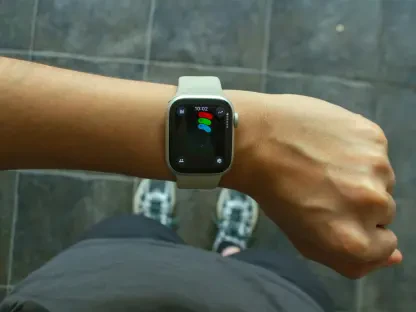In a world where mental acuity is increasingly prized alongside physical well-being, brain training apps have emerged as a compelling tool for bolstering cognitive health, offering a digital avenue to sharpen skills like memory, attention, and problem-solving through accessible and engaging platforms. These tools are capturing the attention of a diverse audience, from individuals seeking personal growth to corporations aiming to enhance workforce productivity. With technology at their core, they promise an accessible and engaging way to maintain mental agility, tapping into the science of neuroplasticity—the brain’s remarkable ability to adapt and form new connections throughout life. As society grapples with pressing concerns about cognitive decline, particularly among aging populations, the allure of these apps lies in their potential to address a critical need.
The urgency for such solutions becomes evident when considering the staggering impact of conditions like Alzheimer’s disease, which currently affects millions of Americans over 65, with projections suggesting a near tripling of cases by 2050. Brain training apps position themselves as scalable, user-friendly interventions that could play a role in mitigating these challenges. Their growing presence in corporate settings further underscores their versatility, as businesses recognize the connection between cognitive health and employee performance. Yet, amid this enthusiasm, skepticism persists about their real-world effectiveness, casting a shadow over their promise. As innovations like AI-driven personalization propel the industry forward, the balance between potential and practical hurdles remains a defining narrative for this technology.
The Rise of Brain Training Apps
Defining Their Purpose and Impact
Brain training apps represent a fusion of digital innovation and cognitive science, designed to enhance mental functions through structured exercises and interactive games. These tools target key areas such as memory retention, focus, and analytical thinking, drawing on the principle of neuroplasticity to stimulate the brain’s capacity for growth and adaptation. Originally viewed as novelty consumer products, they have evolved into sophisticated platforms that cater to a wide range of users, from young adults aiming to boost productivity to seniors seeking to preserve mental sharpness. Their accessibility—often available on smartphones and tablets—makes them a convenient option for integrating cognitive exercises into daily routines, democratizing access to mental health resources in a way traditional methods often cannot match.
Beyond their technical appeal, these apps address a profound societal need as concerns about cognitive health intensify. With an aging population facing heightened risks of neurodegenerative conditions like Alzheimer’s, the demand for preventive and supportive measures has surged. Brain training apps offer a proactive approach, allowing users to engage in activities that may help maintain or even improve cognitive abilities over time. Their relevance is amplified by the sheer scale of the issue—millions are already affected by dementia-related illnesses, and the numbers are set to grow. By providing a low-barrier entry point to cognitive care, these digital tools are increasingly seen as vital components of a broader strategy to tackle one of the most pressing health challenges of the era.
Highlighting a Societal Shift
The growing integration of brain training apps into everyday life reflects a broader cultural shift toward prioritizing mental wellness alongside physical health. As awareness of cognitive decline spreads, particularly among older demographics, individuals are seeking out solutions that fit seamlessly into modern, tech-driven lifestyles. These apps, often gamified to maintain user interest, present mental exercises as enjoyable challenges rather than clinical tasks, appealing to a generation accustomed to digital interaction. This shift is not just personal but systemic, as healthcare providers and policymakers begin to recognize the potential of digital tools in addressing public health crises related to aging and mental deterioration.
Moreover, the societal embrace of brain training apps is fueled by their adaptability to diverse contexts, from personal self-improvement to educational and therapeutic settings. Schools are beginning to explore their use in enhancing student focus, while rehabilitation programs incorporate them for patients recovering from brain injuries. This versatility underscores their role as more than just a trend—they are becoming embedded in various facets of life where cognitive enhancement is valued. As this acceptance grows, the market for these apps continues to expand, driven by a collective desire for tools that support mental resilience in an increasingly complex and fast-paced world.
Effectiveness and Scientific Debate
Weighing the Evidence
The effectiveness of brain training apps in improving cognitive functions has been a focal point of research, with studies revealing encouraging results in specific areas. Experiments published in reputable journals have demonstrated measurable gains in tasks related to attention and memory, especially among older adults who engage consistently with these platforms. Such findings suggest that targeted exercises can indeed strengthen certain mental skills, offering a glimmer of hope for those looking to counteract age-related decline. The structured nature of these apps, often tailored to individual progress, appears to contribute to these positive outcomes, providing a framework that adapts to user needs and maximizes potential benefits over time.
However, while these results are promising, they come with caveats that temper unbridled optimism. Many of the improvements observed are confined to the specific tasks practiced within the apps, raising questions about their broader significance. Researchers note that consistent engagement is crucial, yet not all users maintain the necessary dedication to see sustained results. Furthermore, demographic differences play a role—older adults may experience more pronounced benefits compared to younger users, whose baseline cognitive abilities are often already robust. This nuanced picture highlights the importance of setting realistic expectations and recognizing that brain training apps are not a universal solution but rather a targeted tool with specific strengths.
Real-World Application Gaps
Despite the documented gains in controlled settings, a significant debate persists over whether skills honed through brain training apps translate to everyday life. Reports from esteemed organizations like the National Institutes of Health underscore this uncertainty, pointing to mixed evidence on whether app-based training impacts broader cognitive functioning or practical scenarios. For instance, improving memory for a game within an app does not necessarily equate to better recall during daily activities like remembering appointments or managing complex tasks. This gap between digital performance and real-world utility remains a critical area of inquiry for scientists and developers alike.
Adding to the complexity, the lack of long-term studies means that the durability of any cognitive improvements is still unclear. Most research focuses on short-term outcomes, leaving questions about whether benefits persist over months or years unanswered. Critics argue that without conclusive evidence of transferability, the value of these apps as comprehensive cognitive health tools is limited. This skepticism drives a push for more rigorous, longitudinal research to bridge the divide between controlled results and practical application, ensuring that brain training apps can fulfill their potential as meaningful interventions in mental health care.
Challenges in Adoption and Trust
Overcoming Barriers
One of the most pressing challenges facing brain training apps is user engagement, with statistics revealing that a significant percentage of users abandon these tools after just one or two sessions. High dropout rates—often cited as around 77%—point to issues with design and motivation, as many find the initial experience underwhelming or difficult to integrate into busy schedules. Developers are tasked with creating more intuitive onboarding processes and compelling content to retain interest, recognizing that sustained use is essential for any cognitive benefits to manifest. Addressing this barrier requires a deep understanding of user behavior and preferences to craft experiences that feel rewarding rather than burdensome.
Additionally, the challenge of engagement is compounded by the diversity of user needs and expectations across age groups and backgrounds. Younger users might seek quick, gamified challenges to boost productivity, while older adults may prioritize exercises that target memory preservation. Catering to these varied demands without alienating segments of the audience is no small feat. Solutions may lie in customizable interfaces and adaptive difficulty levels that evolve with user progress, ensuring relevance and appeal over time. Until these hurdles are overcome, the widespread adoption of brain training apps as a staple of cognitive health will remain elusive.
Privacy Concerns
Data security stands as another formidable obstacle for brain training apps, particularly given their collection of sensitive user information related to health and cognitive performance. Recent years have seen a troubling rise in data breaches within the digital health sector, as noted by regulatory bodies like the Federal Trade Commission, eroding public trust in such technologies. Users often share personal details unknowingly, unaware of how their data might be used or protected, which amplifies concerns about privacy violations. For developers, ensuring robust safeguards and transparent policies is paramount to maintaining credibility in a competitive market.
Beyond immediate security measures, compliance with stringent data protection laws is non-negotiable for companies in this space. Regulations demand rigorous standards for handling personal information, and failure to adhere can result in significant penalties and reputational damage. Building trust requires not only technical solutions like encryption but also clear communication about data usage and user rights. As brain training apps seek to expand their reach, particularly in healthcare and corporate environments, addressing these privacy concerns will be critical to fostering confidence and ensuring long-term viability in the digital health landscape.
Innovations and Opportunities
Shaping the Future Through Technology
The brain training app industry is being transformed by cutting-edge advancements, with AI-driven personalization leading the charge in enhancing user experiences. By analyzing individual performance data, these apps can dynamically adjust exercises to match a user’s strengths and weaknesses, optimizing outcomes in areas like memory and attention. This tailored approach has shown particular promise for older adults, with research indicating moderate to significant cognitive improvements when training is customized. Such technological strides elevate the potential of these tools, making them more effective and relevant to diverse user needs in a rapidly evolving digital era.
Integration with wearable technology further amplifies the impact of brain training apps, enabling real-time monitoring of cognitive progress and overall mental well-being. Devices that track biometrics like heart rate variability or sleep patterns can provide valuable feedback, allowing apps to refine their recommendations and enhance user engagement. This synergy between software and hardware creates a more holistic approach to cognitive health, bridging the gap between abstract exercises and tangible health metrics. As adoption of wearables continues to grow, their role in complementing brain training tools suggests a future where mental fitness is as measurable and trackable as physical fitness.
Corporate Potential and Strategic Growth
Brain training apps are carving out a significant niche in the corporate world, where they are increasingly integrated into wellness programs to support employee mental health and resilience. Companies across sectors like technology, healthcare, and finance recognize the value of these tools in reducing stress and enhancing skills such as decision-making and problem-solving. By fostering a mentally agile workforce, businesses can improve productivity and adaptability in high-pressure environments. The backing of institutions like the US National Institute of Mental Health, which highlights the link between cognitive training and workplace performance, further validates their strategic importance.
Moreover, the opportunity for customization presents a unique avenue for corporate growth, as businesses collaborate with developers to create bespoke solutions tailored to specific workforce needs. These tailored apps can address targeted skill gaps—whether analytical thinking or focus under stress—while providing data-driven insights into employee performance. Such innovations not only drive engagement through gamified professional development but also enable leadership to optimize workflows and nurture innovation. As organizations invest in mental health solutions, brain training apps stand poised to become integral to building a competitive, satisfied, and forward-thinking workforce.
Final Reflections on Cognitive Tech Horizons
Looking back, the exploration of brain training apps revealed a landscape marked by both remarkable potential and notable challenges that shaped their trajectory. Their ability to target specific cognitive skills through engaging, tech-driven platforms offered a fresh perspective on mental health care, resonating with millions seeking accessible solutions. Scientific debates and privacy concerns tempered enthusiasm, yet they also spurred critical discussions that refined the industry’s direction. Innovations like AI personalization and corporate applications demonstrated how far these tools had come in addressing diverse needs.
Moving forward, the focus should shift toward actionable steps that solidify the role of brain training apps in cognitive health. Developers must prioritize rigorous research to validate real-world benefits, while enhancing user retention through intuitive design. Businesses can leverage these tools by integrating them into long-term wellness strategies, ensuring they align with organizational goals. As this technology evolves, staying informed and adaptable will be essential to harnessing its full potential, paving the way for a future where mental sharpness is nurtured with the same dedication as physical vitality.









